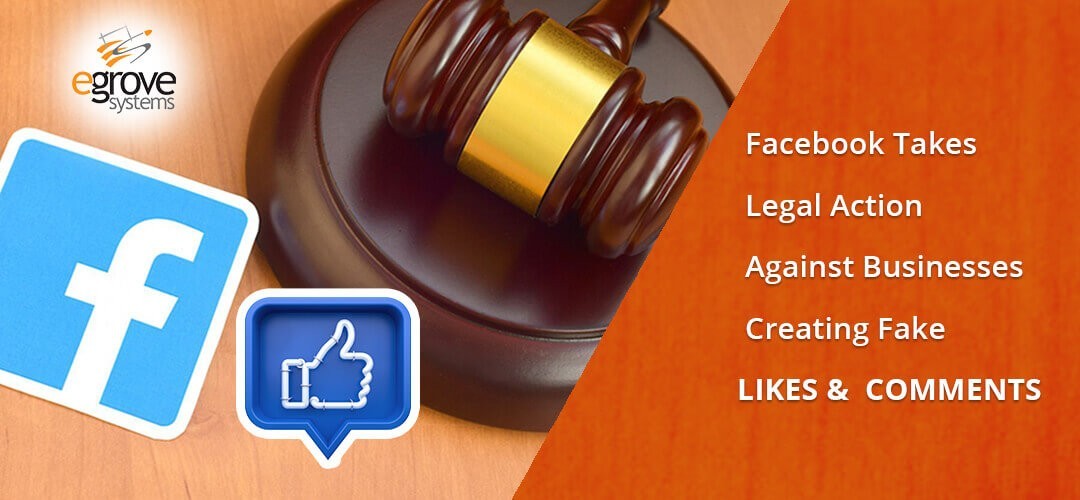Facebook is now seeking to take a stand against companies who make and sell fraudulent likes and comments on its platforms. In June the social media giant took legal action in the United States and Europe against companies collecting user data and selling likes and comments, a move meant to send a message to unscrupulous companies that exploit social media in order to gain publicity for their business.
Lawsuits Announced as a New Strategy for Facebook
Facebook announced its lawsuits against companies in the US and Spain. The European company MGP25 Cyberint Services was identified as selling Instagram likes and comments to create fake publicity on the social media platform for businesses. The company Massroot8, located in San Francisco, collected user data from 5,500 Facebook users while posing as a service for managing multiple accounts, but actually using their credentials to scrape data from across Facebook. Both cases were considered to violate Facebook’s terms of service and the lawsuits also claimed they violated U.S. and European laws by accessing user data under false pretences.
Many companies depend on social media to promote their business and connect with their customers, but Facebook, Instagram, and other platforms can be manipulated by coordinated fake accounts, leading to the creation of paid services like these. While social media companies frequently shut down groups that create fake accounts, they persist with new methods. In both cases, Facebook stated that the companies continued their activities after being sent cease-and-desist notices and being restricted from using the platforms.
The continued impact of automated and falsified social media accounts makes the reliability of commercial social media pages questionable and hurts the visibility of businesses that only rely on organic social media activity. Taking legal measures, rather than just shutting down the attempts, may do more to discourage these bad actors and make them better places for businesses.
Read also:- How Google’s free shopping ads affect other channels of marketing
The Trend of Facebook’s Legal Approach
In March of 2019, Facebook sued multiple individuals in China for selling fake accounts, saying “Inauthentic activity has no place on our platform.” In September of last year, the company settled with a New Zealand firm over the selling of millions of social media ‘likes’. In many of these cases, Facebook’s legal proceedings were based on violations not directly related to the creation of fake accounts, but other fraudulent behaviours such as making websites using Facebook’s brand name or using apps that collected user data without permission. The act of making and using false accounts to promote businesses is usually handled directly, where Facebook claims to delete ‘millions’ of fake accounts each day as terms of service violations.
These cases show that social media companies are feeling more and more pressure to act on companies benefiting from mass fake accounts. Due to the worldwide spread of social media fraudsters, they may be hard to target with lawsuits, but the increased efforts put in by Facebook and other companies may begin to have more of an impact.
How Can Businesses Approach Social Media?
Even with the presence of faked engagement skewing the true popularity of businesses on social media platforms, there is still value in a strong social media approach. Constant updates and interaction can help build an audience. Businesses should be wary of doing business with social media promotion companies if their methods appear to be shady or if they promise huge amounts of comments and other forms of engagement because they could be using fraudulent means to achieve results more easily, and the traffic they generated could vanish when the platform catches on.
Social media companies are continually adjusting and making changes to their platforms, making it hard for smaller businesses to understand how to best promote themselves. The current trend of crackdowns against fake user engagement shows that businesses should be cautious about paying for social media traffic if they want to avoid the risk of losing access to a valuable marketing platform.


